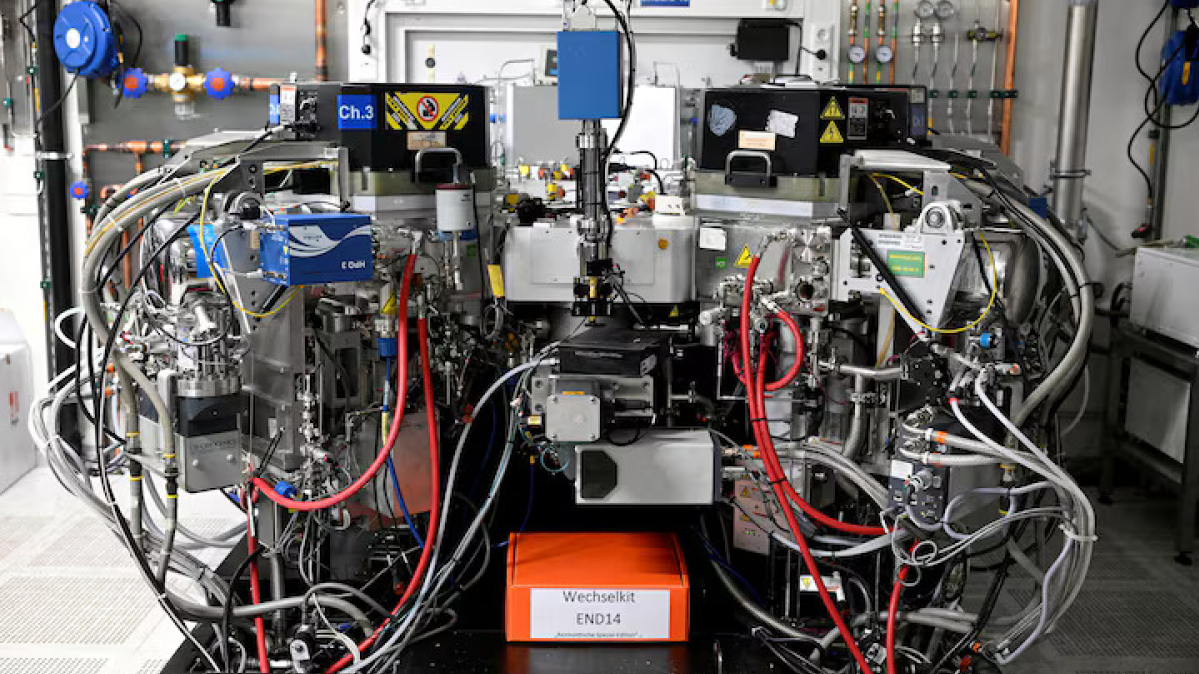Thousands of flights cancelled as Gulf hubs shut down over Iran-U.S. conflict
Global air travel remained in turmoil on Monday after U.S. and Israeli strikes on Iran and retaliatory strikes in the Gulf region prompted widespre...

China has announced exemptions to its export controls on Nexperia chips intended for civilian use, the commerce ministry said on Sunday, a move aimed at easing supply shortages affecting carmakers and automotive suppliers.
The decision marks Beijing’s clearest indication yet that it plans to reduce pressure on the global automotive sector caused by export restrictions introduced after the Dutch government assumed control of Nexperia, a major producer of basic semiconductors used in vehicle electrical systems.
Nexperia, headquartered in the Netherlands but owned by China’s Wingtech, is central to the dispute. While China’s commerce ministry did not define what constitutes “civilian use,” the announcement follows reports from German and Japanese firms confirming that deliveries of Chinese-made Nexperia chips have resumed.
Despite this easing, relations between China and the Netherlands — and by extension the European Union — are expected to remain tense until the question of Nexperia’s ownership and operations is resolved. The Dutch government took control of the company on 30 September, citing security concerns over Wingtech’s alleged plans to relocate European production to China.
In response, Beijing halted exports of the company’s finished chips, most of which are packaged in China, but later said it would begin accepting exemption applications following a meeting between U.S. President Donald Trump and Chinese President Xi Jinping on 30 October.
China’s commerce ministry has maintained that its actions are intended to safeguard global chip supply chains, accusing the Netherlands of failing to address the issue. In its latest statement, the ministry expressed hope that the EU would “step up efforts” to persuade the Dutch authorities to reverse their decision, urging Brussels to “use its influence” to prompt the Netherlands to “rectify its erroneous actions.”
Follow the latest developments and global reaction after the U.S. and Israel launched “major combat operations” in Iran, prompting retaliation from Tehran.
Ayatollah Alireza Arafi has moved into a pivotal constitutional role following the death of Supreme Leader Ayatollah Ali Khamenei, becoming the clerical member of Iran’s temporary leadership council under Article 111 of the Constitution of the Islamic Republic of Iran.
The Kremlin is utilising the recent United States and Israeli military strikes on Iran to validate its ongoing war in Ukraine. Russian officials are pointing to the escalation in the Middle East as evidence that Western nations do not adhere to international rules.
Saudi Arabia’s state oil giant Saudi Aramco closed its Ras Tanura refinery on Monday following an Iranian drone strike, an industry source told Reuters as Tehran retaliated across the Gulf after a U.S.-Israeli attack on Iranian targets over the weekend.
The Middle East crisis intensifies after the deadly attack on Iran's Supreme Leader Ali Khamenei's compound on Saturday that killed him, wife and other family members and senior figures. Iran has launched retaliatory strikes on U.S. targets in the region.
South Korea will soon cease to be one of the few countries where Google Maps does not function fully, after its security-conscious government reversed a two-decade-old policy and approved the export of high-precision map data to overseas servers.
New research suggests 40,000-year-old carved objects from south-western Germany bear repeated marks arranged in organised sign sequences similar to early proto-cuneiform, although they are not regarded as a form of writing.
The chief executive of Google DeepMind, Demis Hassabis, has called for more urgent research into the risks posed by artificial intelligence, warning that stronger safeguards are needed as systems become more advanced.
NASA successfully completed a critical fueling rehearsal on Thursday (19 February) for its giant moon rocket, Artemis II, after earlier hydrogen leaks disrupted preparations for the next crewed lunar mission. The launch is scheduled for 6 March, according to the latest information from NASA.
ByteDance will take steps to prevent the unauthorised use of intellectual property on its artificial intelligence (AI) video generator Seedance 2.0, the Chinese technology firm said on Monday.
You can download the AnewZ application from Play Store and the App Store.

What is your opinion on this topic?
Leave the first comment